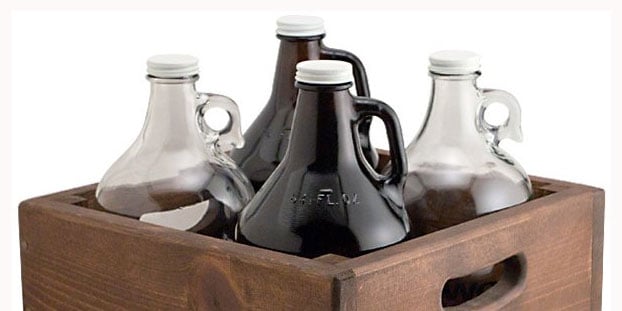
Last Wednesday, Michigan Gov. Rick Snyder signed a piece of legislation that will allow the filling and selling of growlers by more retailers with fewer licenses. The bill basically revises the definition of an “eligible merchant” for legally selling and filling growlers, which has evolved over the last few years. Here’s a brief refresher on Michigan growler law history:
- Under previous Michigan law, a restaurant, bar or similar establishment could not legally fill growlers with beer for off-premises consumption unless it held a brewpub, brewer or microbrewer license.
- Public Act 101 of 2013 amended the Michigan Liquor Control Code to allow eligible merchants such as restaurants and bars to fill and sell growlers with beer with A) a specially designated merchant license (which allows the retail sale of beer and wine for off-premises consumption) and B) another license that allows the sale of beer for on-premises consumption. That meant that an establishment that had a specially designated merchant license and a specially designated distributor license (which allows the sale of packaged liquor for off-premises consumption) could not fill and sell growlers.
- Public Act 514 of 2016 amended the Michigan Liquor Control Code to allow a person holding a specially designated merchant license and a specially designated distributor license to fill and sell growlers with beer for off-premises consumption.
- AND NOW: Public Act 40 of 2018 keeps the requirement that merchants filling and selling beer growlers have a proper food license and “specially designated merchant” license, which allows beer to be sold for use off the premises, but this law will eliminate the requirement that a merchant get an additional license — such as a tavern license or a “specially designated distributor” license — to fill and sell growlers. This will allow more retailers such as smaller grocery stores and beer and wine specialty shops to fill and sell beer growlers, streamlining the regulatory process by eliminating the need for these merchants to get an additional license.
Exhausting, right?
The governor’s calling it a win. From his press release:
“Michigan has a growing beer industry and this legislation will be a great perk for beer retailers and craft beer fans statewide,” Gov. Snyder said.
The filling and selling of growlers can be done under the following conditions:
- The location where the filling of growlers takes place complies with the Food Law.
- The growler is sealed and has a label that includes the brand name, the class of the beer, the net contents of the container, and the name of the retailer filling the growler.
- The eligible merchant or the merchant’s agent or employee does not fill a growler in advance of the sale.
The growler is a clean, refillable, resealable container that has a liquid capacity that does not exceed one gallon. - The eligible merchant only fills growlers from a container that has a capacity of five gallons or more and complies with all of the applicable promulgated rules of the Liquor Control Commission.
Now let’s go get some growlers already.





Leave a Reply
You must be logged in to post a comment.